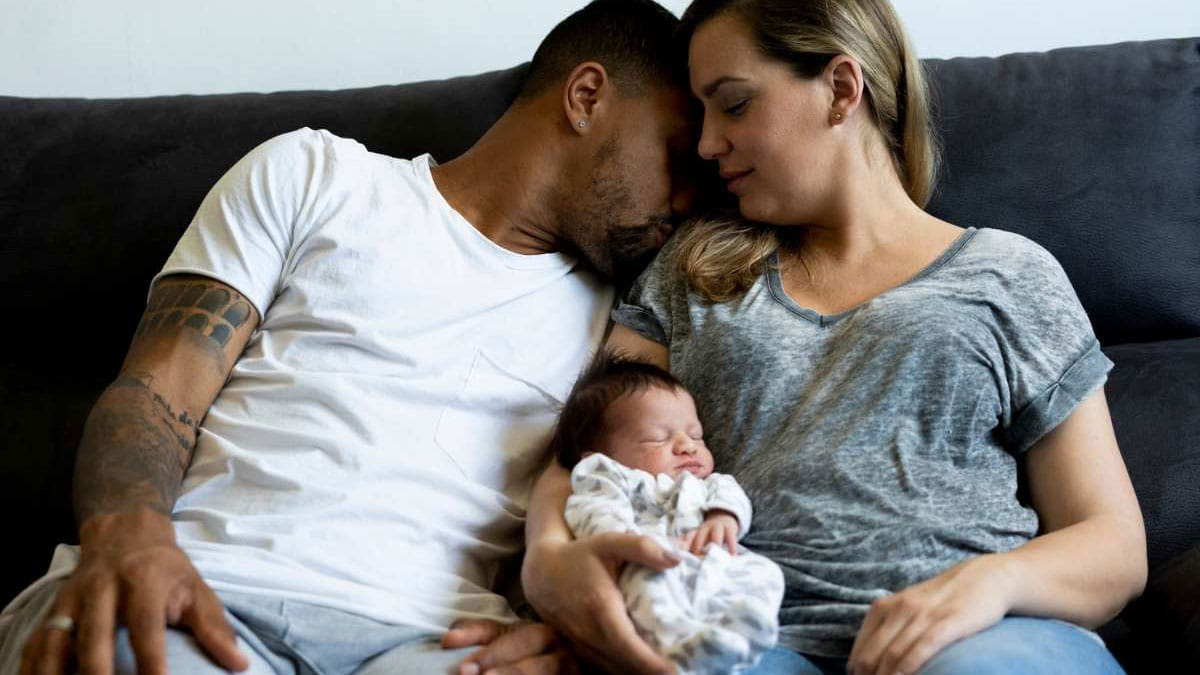Blog article
Understanding postnatal depression and anxiety

Being a new parent can be exciting and daunting in equal measures. But if the lows are affecting your wellbeing and getting in the way of normal life, it might be a sign you could benefit from seeking help.1
To understand more about the ‘baby blues’, postnatal anxiety and postnatal depression, we talked to psychologist Dr Marny Lishman.
In this article
- What is postnatal depression and anxiety?
- Signs and symptoms of postnatal depression and anxiety
- How is it different to the ‘baby blues’?
- Who can help with postnatal mental health?
- Self-management techniques
- How can HBF help?
What is postnatal depression and anxiety?
Postnatal depression or anxiety – mental health conditions that can occur after the birth of a baby – affect more than 1 in 7 new mums and up to 1 in 10 new dads.2
Anxiety is categorised by feelings of panic, agitation, frustration or anger. Depression is associated with feeling sad, withdrawn and hopeless.1
Some new parents experience both anxiety and depression at the same time.1
“It’s quite normal to feel a certain amount of stress and anxiety, as well as low mood, throughout and after pregnancy,” Dr Lishman says.
“However, things can become problematic when these feelings are excessive and start causing significant distress.”
Signs and symptoms of postnatal depression and anxiety
Dr Lishman says signs and symptoms of postnatal anxiety or depression vary, but may include:
- Feeling on edge or constantly worried
- Mood swings
- Feeling sad or hopeless and crying a lot
- Feeling irritable
- Poor sleeping habits
- Avoiding others and withdrawing from activities
- Obsessive behaviours
- Feeling tired and lacking in energy
- Brain fog or difficulty focusing
- Panic attacks
- Changes in appetite
If these signs or symptoms continue for two weeks or more, it’s a good idea to seek support, Dr Lishman says.
How is this different to the ‘baby blues’?
The ‘baby blues’ is a term used to describe a common experience of feeling emotional in the first few days after giving birth. Symptoms can include feeling teary, anxious or irritable.2
The key difference is that these symptoms usually only last a few days, and generally don’t need mental health treatment – these symptoms can usually be resolved with support and understanding.2
If these feelings last longer than two weeks, it may be a sign that you’re developing postnatal depression or anxiety.2
Who can help with postnatal mental health?
A range of health professionals can help with postnatal mental health. These may include:4
- Your GP. Talking to your GP is a good first step. They can assess your symptoms, give you some useful information and refer you to a mental health professional if needed.4
- Mental health professionals such as psychologists and psychiatrists can help you manage symptoms of mental illness.5 HBF extras cover can give you benefits towards visits with a psychologist.
- Your midwife, obstetrician or Child and Family Health nurse (or Maternal and Child Health nurse in Victoria) can play a role in checking in on your wellbeing and refer you to support services, including local support groups.4
Other ways to seek help include talking to other parents who’ve experienced postnatal anxiety or depression, or calling a helpline such as the PANDA (Postnatal Anxiety and Depression Australia) Helpline.2
“Try to ensure you openly chat and confide with the support people in your life, whether that’s friends, family, community members or colleagues,” advises Dr Lishman.
“It can also help to join a parents’ group when your baby arrives.”
Self-management techniques
Becoming a parent is a significant life experience. It’s only natural that you may feel overwhelmed at times.
But you’re not alone in feeling that way and there are things that can help ease that stress. Dr Lishman says a few things that may help include:
- Relaxation. Try to make time to do the things you love. Take a nice long bath, read a book, or have a massage.
- Social connection. Catch up with friends or family regularly.
- Accepting help. Take up any offers from friends and family to help. If you’re raising your baby with a partner, share the caring duties and household chores.
- Self-compassion. Be kind to yourself. Remember every day is a new day.
- Learning to manage your thought patterns. When negative talk comes, try to replace it with a more positive thought. A psychologist can help teach you strategies for doing this.
- Exercise. Try to do some form of physical activity each day to get those feel-good hormones pumping.
- Healthy eating. It’s important to nourish yourself with a nutritious diet, based on the Australian Dietary Guidelines.
- Asking for parenting advice. Ask a Child and Family Health nurse/Maternal and Child Health nurse for any practical advice on things like feeding or sleeping that may be causing stress.
How can HBF help?
No matter where you are in life, looking after your mental health is important.
- HBF extras cover can give you benefits towards visits with a psychologist or clinical psychologist, up to your annual limit.
- HBF hospital cover can pay benefits for hospital psychiatric services to treat mental health conditions.
Find out more about HBF mental health cover and how it could help you and your family.
1 PANDA (Perinatal Anxiety and Depression Australia) – What is perinatal anxiety and depression?
2 PANDA (Perinatal Anxiety and Depression Australia) – Anxiety & Depression in Pregnancy & Early Parenthood
3 Pregnancy Birth and Baby – Baby blues (2019)
4 PANDA (Perinatal Anxiety and Depression Australia) – Support for individuals and families
5 healthdirect – Psychiatrists vs psychologists (2019)
This article contains general information only and does not take into account the health, personal situation or needs of any person. In conjunction with your GP or treating health care professional, please consider whether the information is suitable for you and your personal circumstances.



